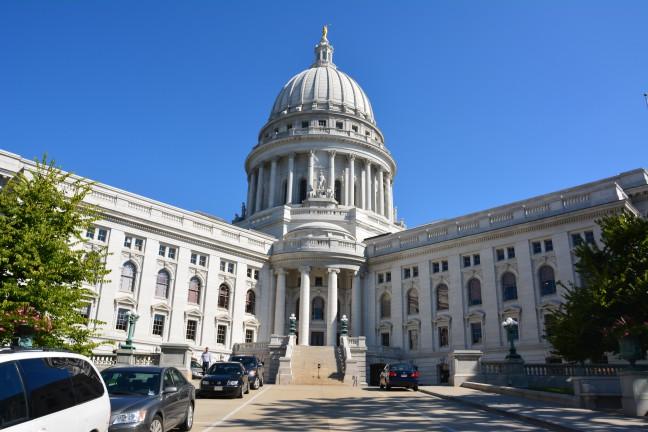With widened majorities in both chambers of the state Legislature following November’s elections, Republican lawmakers hope to help Gov. Scott Walker achieve his goals of increased government efficiency.
In his State of the State address last week, Walker said that efficiency agenda includes combining two state economic development agencies, as well as the agency that regulates financial institutions with the agency that issues licenses for anyone from health professionals to barbers.
Rep. Dave Murphy, R-Greenville, said this push toward efficiency comes at a time when Walker is looking for ways to can provide services at a lower cost to taxpayers in light of the potential $2.2 billion shortfall facing the 2015-16 biennial budget.
“To fill all the buckets that need to be filled, plus come up with property tax relief is going to be challenging,” Murphy said. “And so that’s where stretching the dollar is going to be very, very important.”
Some experts say tax decreases cause for gap in 2015-2017 state budget
Walker encouraged lawmakers to pass legislation combining the Wisconsin Economic Development Corporation with the Wisconsin Housing and Economic Development Agency. WHEDA has been functioning in the state for more than four decades, while WEDC is the agency Walker and Republican lawmakers created in 2011 to replace the Department of Commerce.
Rep. Chris Taylor, D-Madison, said while she supports making government more efficient, she would like to see Walker focus more on improving conditions for the people of Wisconsin directly.
“When we go down the path of consolidating departments and things like that, we have to proceed cautiously,” Taylor said. “I’m more concerned about making sure the government is actually working for the people of the state.”
Taylor and Murphy, who chairs the Assembly’s Colleges and Universities Committee, both said they hope to see lawmakers focus on the University of Wisconsin System more this session. Ensuring Wisconsin keeps a quality higher educational system is key to the state’s economic development, Taylor said.
Both representatives agreed the average Wisconsin student loan debt of around $25,000 was sizable, and is often an obstacle to those graduating college.
“I would love to hear and engage in that discussion [of student loan debt] because that has such severe economic consequences for students and for the whole economy in the state,” Taylor said.
Murphy said he would like another two-year tuition freeze at the UW System to continue helping its students save money, a move that the governor has said he supports.
Murphy added he understands concerns that another tuition freeze could harm the quality of education, given the decreased funds for the UW System.
“This is where efficiency comes into play,” Murphy said. “We need to make sure we are delivering the same or better quality education at lower tuition than we were before. Otherwise, it’s not a benefit.”
Taylor said students loans and tuition are not the only student-related issues that lawmakers will face this session. She said a new bill requiring voters to provide valid government-issued photo ID at polling places will likely be brought up again this year.
The Government Accountability Board, which is made up of six nonpartisan judges who oversee Wisconsin elections and ethics, is also facing scrutiny from Republican lawmakers this session, who accuse the agency of conducting an unfair investigation into Walker’s 2012 recall campaign.
Murphy said lawmakers would likely push to appoint representatives from both parties to the GAB, but Taylor was critical of any potential moves to make the organization more partisan, similar to the elections agency that the GAB replaced.
“To say we’re going to go back to a partisan, a political model, that is, it just kind of goes down the old political path and not the path that’s best to ensuring we have clean, open election, it’s just going backwards,” Taylor said.













